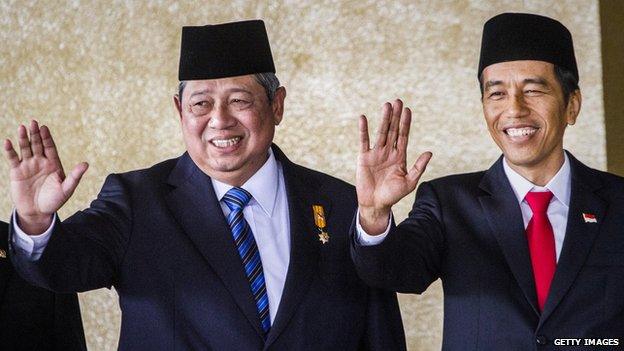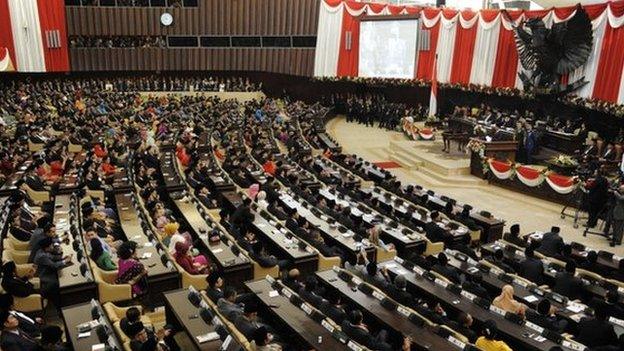Indonesia economy grows at slowest pace in five years
- Published

Indonesia's new president Joko Widodo (R) has inherited a slowing economy
Indonesia's economy expanded at its weakest annual pace since the global financial crisis after being affected by falling oil and commodity prices.
Gross domestic product (GDP) grew by 5% in 2014, compared to a revised 5.58% the previous year.
South-east Asia's largest economy is a major exporter of commodities such as palm oil, rubber, coal and tin but saw revenues fall owing to falling prices.
It has also seen foreign investment cool because of political uncertainty.
Gareth Leather, an Asia economist at Capital Economics, called the growth figures were "disappointing".
"The country's new president, Joko Widodo, despite a promising first few months in office, faces a tough challenge to reinvigorate the economy," he wrote in a report.
"While we don't think growth will slow any further from here, we think a rebound is unlikely in the short-term, with weak commodity prices and high interest rates set to weigh on economic activity."
Mr Widodo took office in October, pledging to cut bureaucracy, improve infrastructure and address the country's fiscal problems to attract more investment.
The country has struggled to contain high inflation, which eased to 6.96% in January from 8.36% in December.
It also has a sizeable current-account deficit - which occurs when a country imports more than it exports - that stood at 3.1% of gross domestic product in the third quarter.
Indonesia's stock market fell by 0.8% following the GDP release.
- Published20 January 2015
